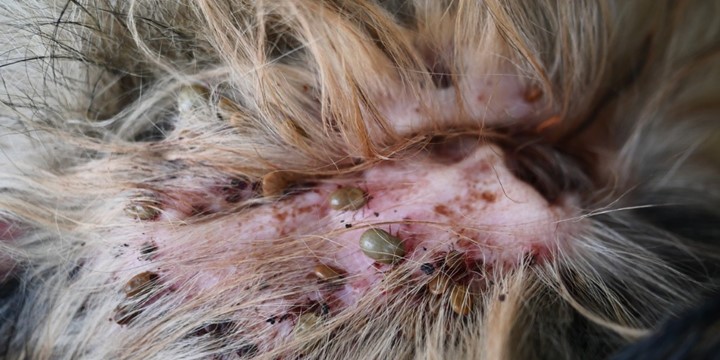
Rainbow City Pet Clinic veterinarians are the best reference, with expert knowledge of the parasites your pet and family can be exposed to in our region. Providing continuous protection against harmful parasites is not only essential in protecting the overall health of your dogs and cats but also for humans, especially kids.
Now that dogs and cats are treated like family members, we share our home with them. So it is even more significant to keep your fur family members on monthly parasite prevention to ensure that you reduce the risks associated with the transmission of parasitic diseases from pets to people. A common misbelief is that fleas and ticks can be less relevant in winter; however, they often survive in your house for those months. As our region’s weather counties to change, we noticed fleas and ticks are in our environment year around.
Rainbow City Pet Clinic recommends and offers several brands of year-round parasite prevention to protect your fur and human family members. We have our opinions of the BEST products for your pet so let us help you with a recommendation!
Ticks: You may notice irritation and itching around where the tick is attached, and ticks attached and feeding in the ears are exceptionally PAINFUL! Your pet can get a bacterial infection where the tick was attached (this is especially true in the ears). Left untreated, this infection can become a blood infection that can cause death (sepsis). Though uncommon, your pet can suffer significant blood loss from large numbers of attached ticks. In addition, a specific female tick, when attached, can cause toxicosis that presents as paralysis in your pet.
More importantly, ticks can cause many diseases in you and your pets! You probably heard the most about Lyme Disease and Rocky Mountain Spotted Fever. These diseases cause fever, joint pain, and other signs in you and your pet and can often be ignored until the conditions are much worse. Ehrlichiosis is the most common tick-transmitted disease that we see in our region. This disease can be transmitted within as little as 3–6 hours of tick attachment.
Cats suffer less than dogs from tick infestation, but when transmitted, the diseases make cats very ill with fever, depression, loss of appetite, and blood loss (anemia).
For more information on parasites, visit https://www.petsandparasites.org/







